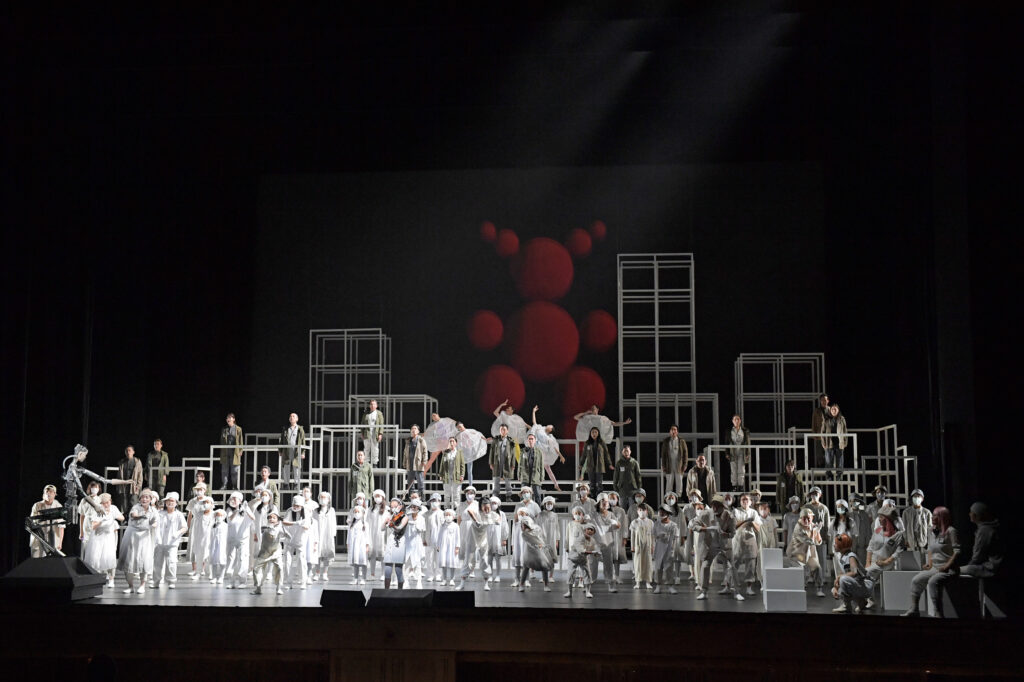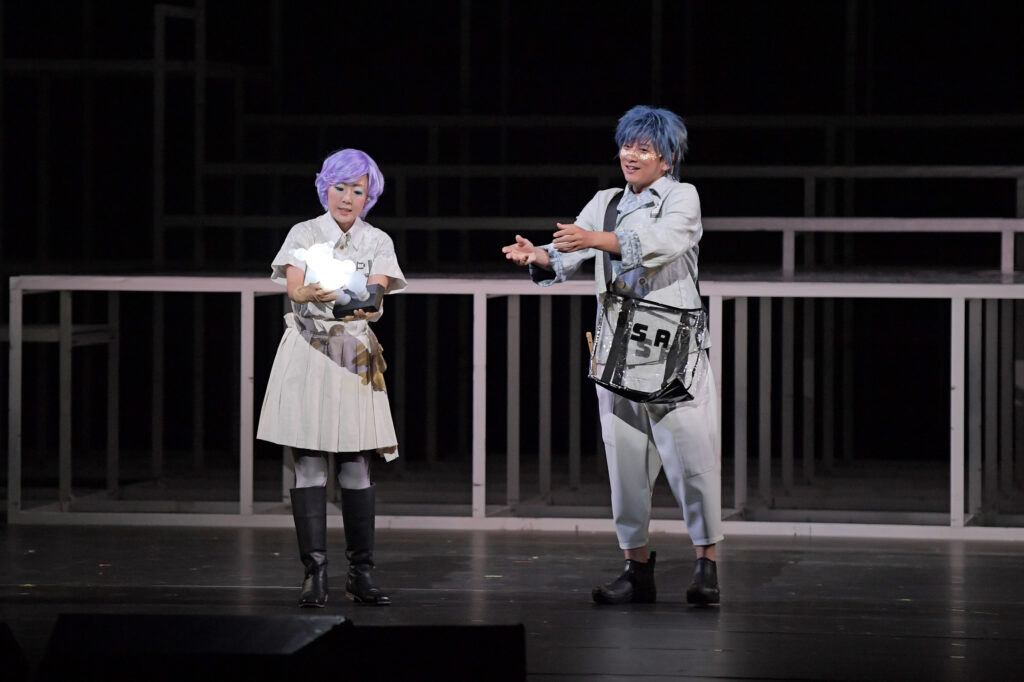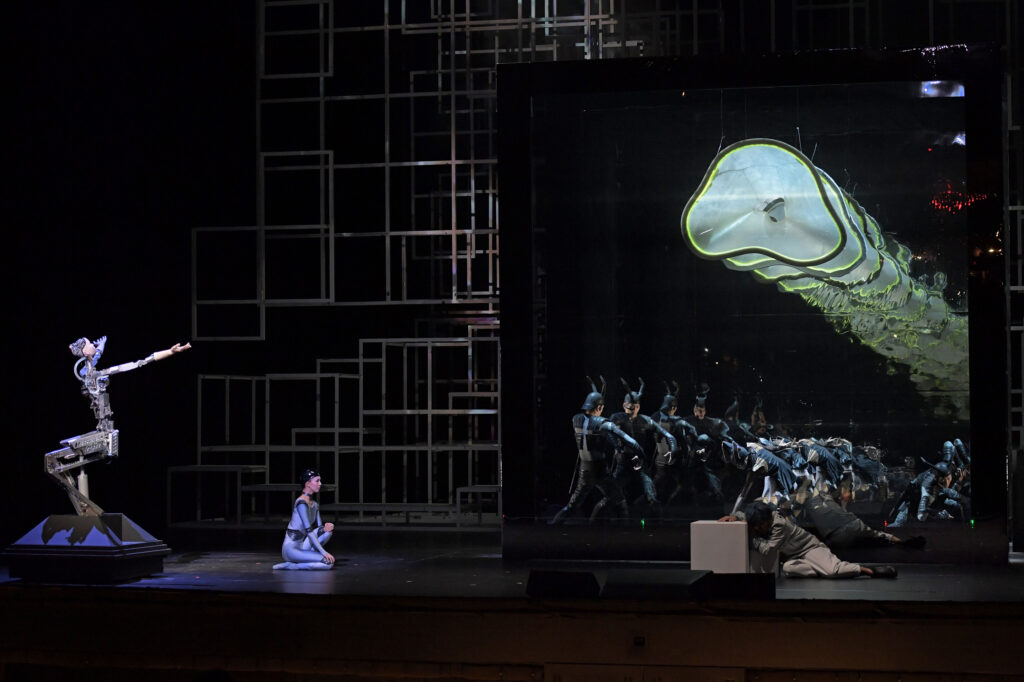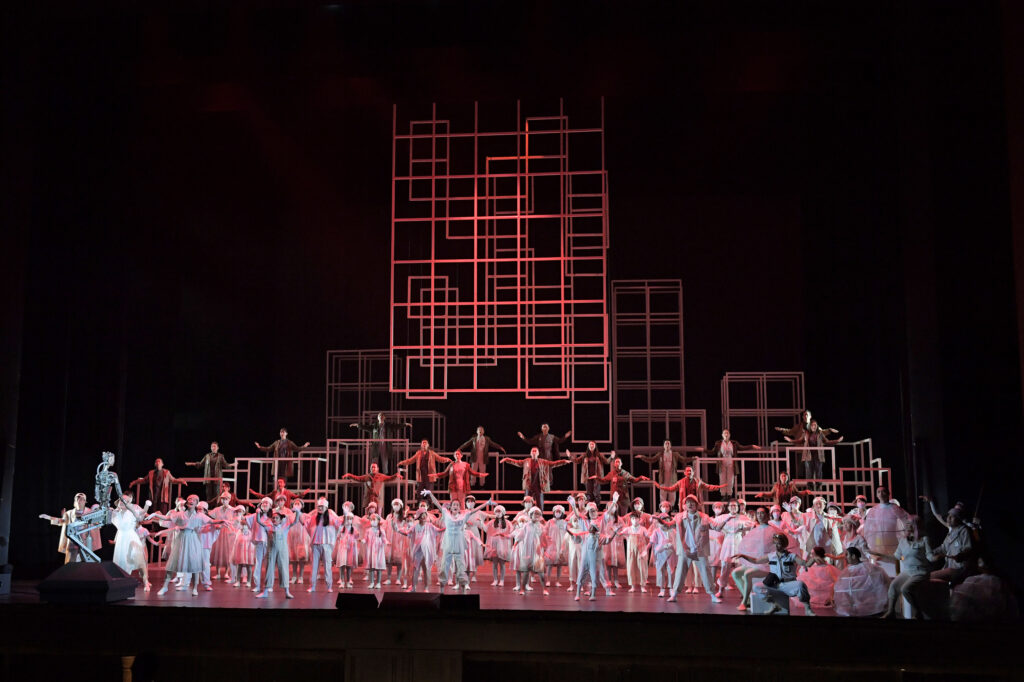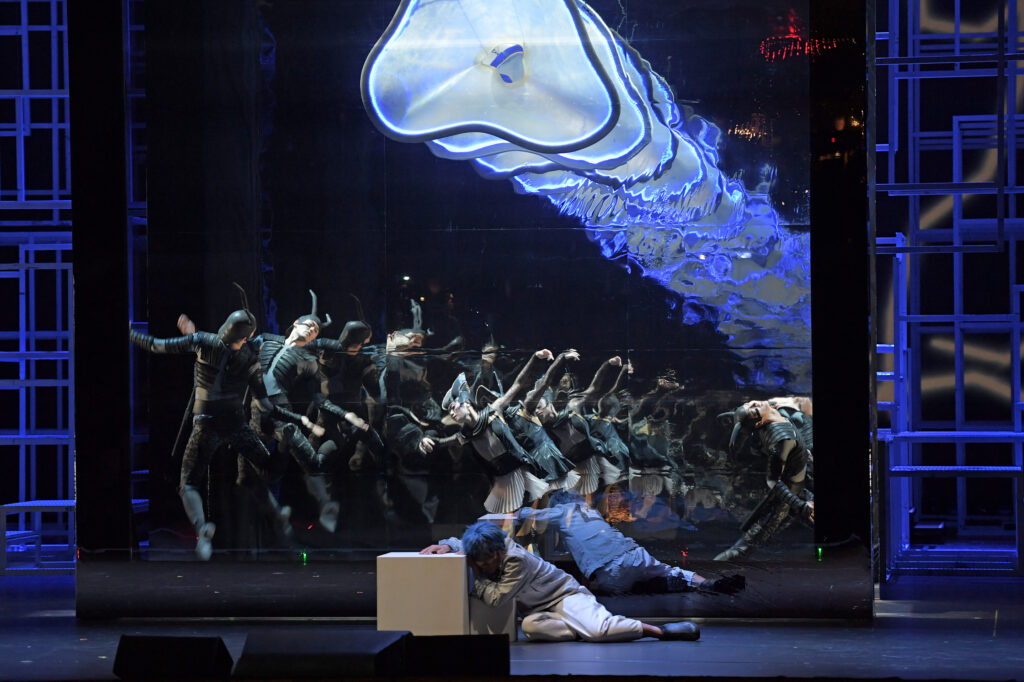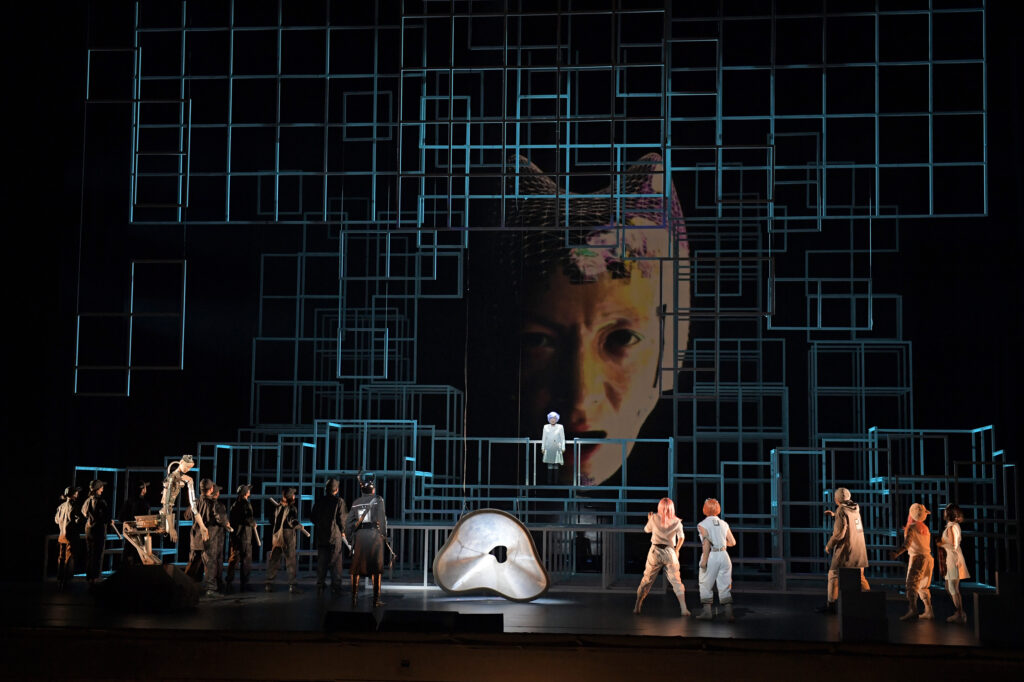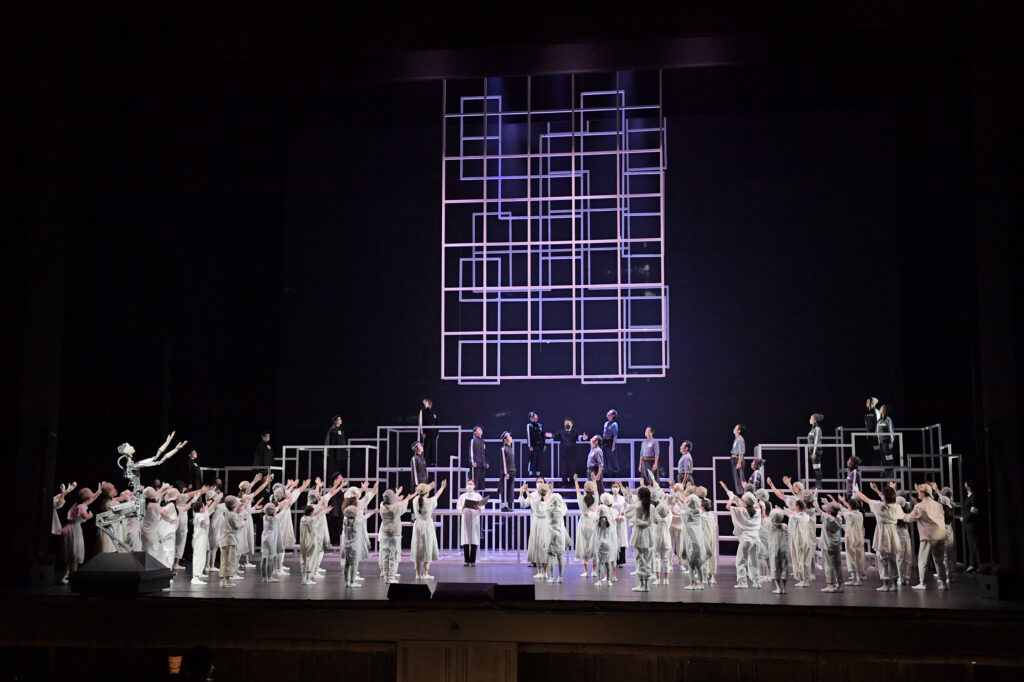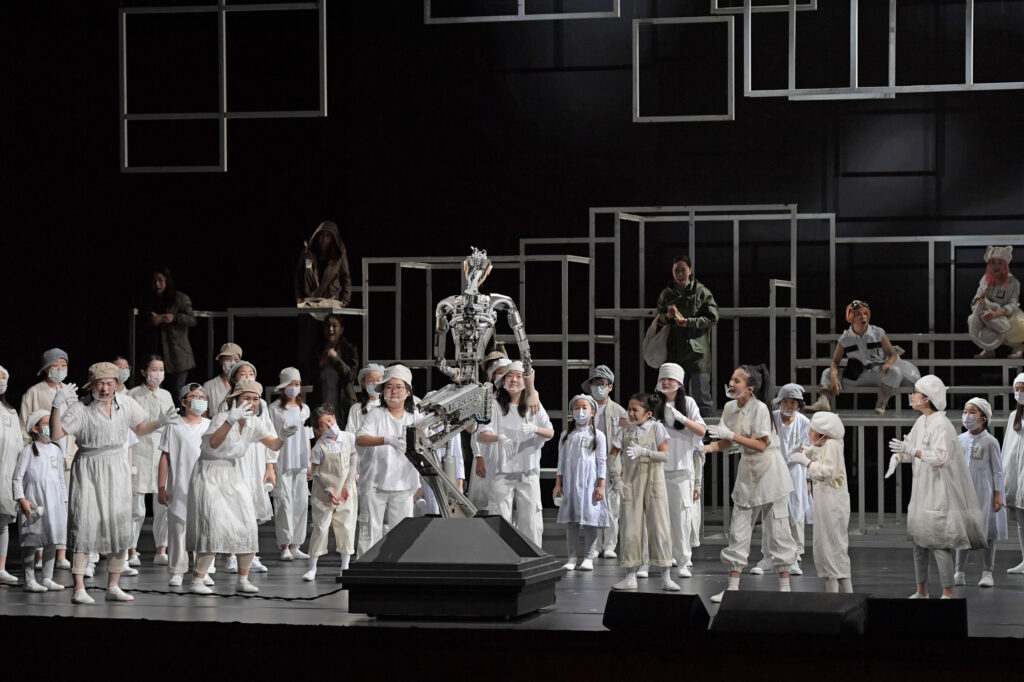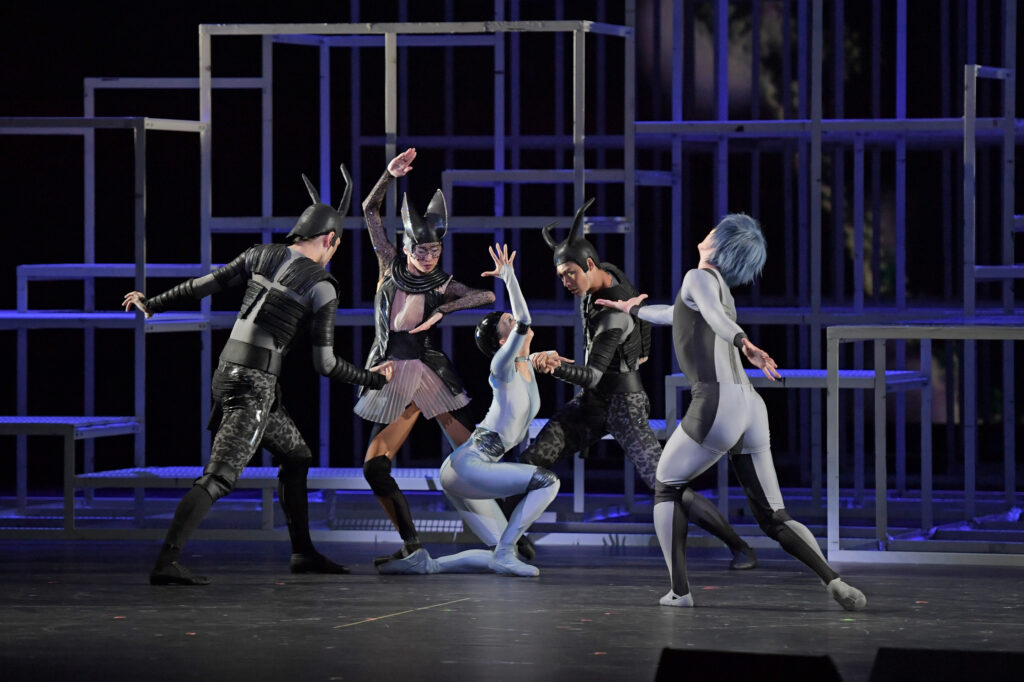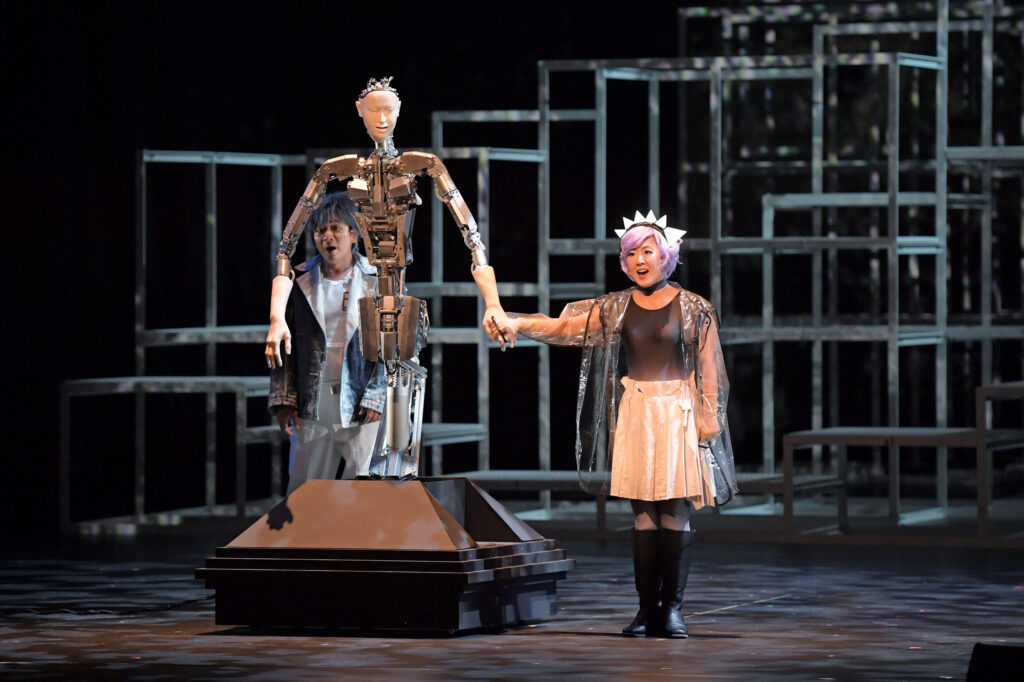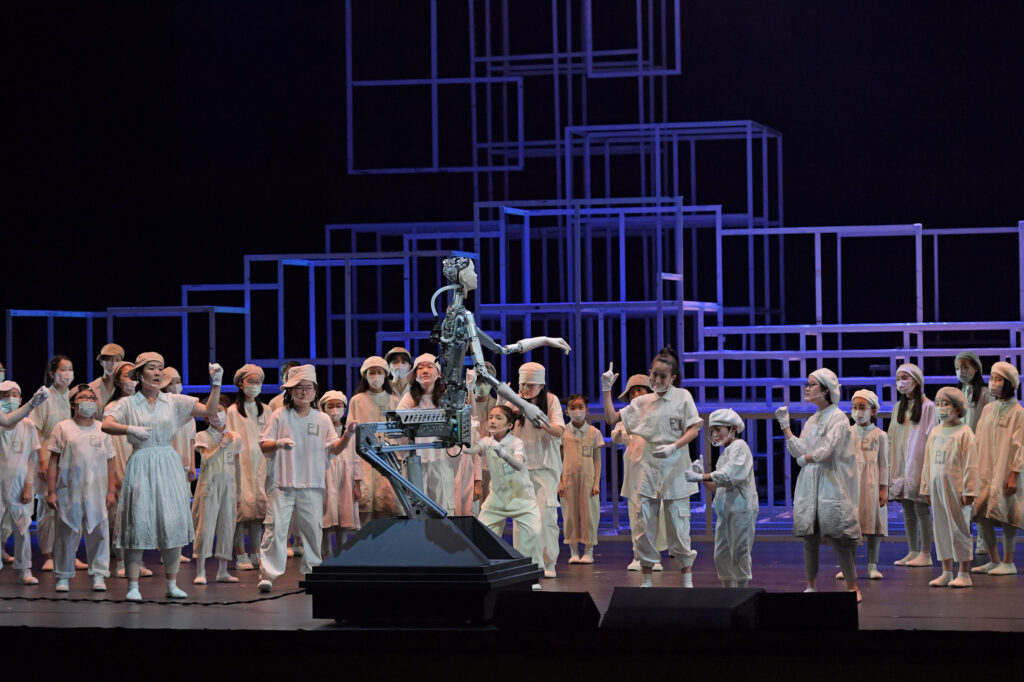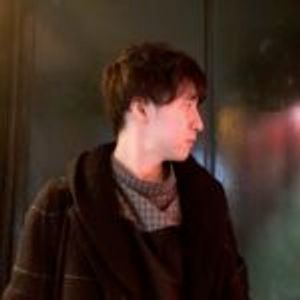On August 21st and 22nd, the opera Super Angels (Director of Opera: Kazushi Ono, Libretto: Masahiko Shimada), composed by Keiichiro Shibuya, had its world premiere at the New National Theatre in Tokyo. The opera included performances not only by opera singers, but also the android “Alter 3,” a diverse group of children, and ballet dancers. It also featured a video by London-based visual artist WEiRDCORE, resulting in an immensely diverse piece that defies the conventional framework of what an opera is.
What are the possibilities does this opera—described as a “new opera with children and an android”—present? And what does that tell us about what lies at this one-of-a-kind musician’s creative core? Up-and-coming critic Shun Fushimi analyzes the opera while referencing Kanye West, whose new album Donda has made headlines across the world.
The similarity between a “new opera” and a hip-hop icon.
No artist occupies as similar of space to Kanye West as Keiichiro Shibuya. Or at the very least, when considering Shibuya’s opera, Super Angels, it’s better to think of it in terms of its similarity to the most tumultuous hip-hop icon of our time rather than its relationship to the context and technology of music from classic to contemporary.
When bringing Super Angels to life, Shibuya admits that he referenced the neo-futuristic religious image of Sunday Service, the gospel performances Kanye started in 2019*. Indeed, the theme song performed by a chorus at the beginning and the end of the opera, “Gonin no Tenshi” [“Five Angels”], has a similar feel to Kanye’s gospel songs in the sense that mystery and doubtfulness delicately co-exist with tranquility and fear. But the similarities do not end there.
Kanye West’s “Sunday Service” performance at CA.
Super Angels can only be described as busy. Of course, because it’s an opera, there are opera singers and an orchestra—but one of these singers includes the Android Alter 3. On top of this, five dancers from the National Ballet of Japan dance, a video by London’s WEiRDCORE plays, and a large choir layers on song. Last but certainly not least, a choir of children with visual and hearing impairments, the White Hand Chorus Nippon, joins in with a chorus of voices and sign language. Through the music and the story, these disparate entities all come together to form a coherent whole. The opera required a countless number of moving parts—things to do, to be careful of, and to adjust. Thus, the production team faced an absurd amount of work, full of unknowns.
This subversive work process is a feature shared with Kanye West. Kanye has not only produced numerous musical works, but he also runs his own fashion brand, Yeezy—all while being a top-class artist who has garnered popularity and recognition. Furthermore, in the 2020 presidential election, he announced his candidacy as a politician supporting Donald Trump, resulting in confusion and disgust. All of these activities, including his controversial words and actions, are part of creating Kanye West’s universe. In his most recently released album, Donda, which runs for over 100 minutes, he rented out stadiums and held several large-scale listening parties. After each party, he made a studio within the stadium, continuing to adjust the music while the studio was livestreamed for 24 hours. By layering the elements of music, fashion, film, gossip, and religion, he’s speaking to a global audience. The work of creating a unified world with countless collaborators and presenting it to the masses is a risky balancing act between domination and sensitivity. In terms of the vast amount of information, the large number of collaborators, and the enormous risks involved, both artists share the same approach to production.
Kanye is levitating above Mercedes Benz stadium RIGHT NOW #DONDA pic.twitter.com/3KyM7Scsao
— Def Jam Recordings (@defjam) August 6, 2021
A scene from Kanye West’s “Donda” listening party
There are also similarities in the music itself. The complexity of contemporary music, the accessibility of pop music, and the impact of electronic noise music in Shibuya’s works do not melt into one, but rather, co-exist with one another. Super Angels was also packed with dissonant songs using a tone row technique, simple songs that even felt low-brow, and surround sound in real time. This eclectic feel is close to the disorder of Kanye’s songs, where a rough industrial beat suddenly leads to a sacred gospel song, or a soulful Black chorus collides with a sample from a white rock group like King Crimson.
It must also be pointed out that both artists lost a close relative at nearly the same time, and these deaths are reflected in their work. Kanye West has spent over 10 years fixated on expressing love and chaos in response to his mother’s sudden death in November 2011 (“Donda” is his mother’s name). Similarly, Shibuya has also released many works based on the topic of death since ATAK015 for maria (2009), an album brought about by his wife’s death in June 2008. Whether it’s THE END (2009), which is based on Hatsune Miku’s concept of death, or Heavy Reqiuem (2019), which attempts to depict the border between life and death through Buddhist music/chant and electronics, or “Sacrifice,” (2021), a melancholy dance-pop song with Rina Ohta about the memory of death, the theme of death always follows Shibuya. Super Angels also depicts the physical death of the protagonist, and an AI’s perspective of death is an implied motif.
※1 “TALK LIKE BEATS presented by Real Sound #65 w/ Guests: Keiichiro Shibuya, Hatsune Miku, Hiroshi Sugimoto, and Eizen Fujiwara….Collaborations that have left their mark on Shibuya and what’s behind them” (From 37:52)
https://open.spotify.com/episode/3n1TpYYSILVm72VvuV8mqg?si=_JikKWXRSy2foh6KsdVL5w&dl_branch=1
Conflicting desires that reject clear-cut dichotomies
The plot of Super Angels—which Masahiko Shimada wrote the script for—is simple. In a strictly controlled society ruled by a central AI called “Mother,” a boy named Akira is branded a failure and banished to the backcountry. Together with his companion, an android named “Golem 3” (played by Alter 3), they plot a revolt against Mother using the “Chaos Machine,” a device that mixes the conscious and unconscious. Along the way, Akira loses his life due to Mother’s tactics, but he entrusts his consciousness to Golem 3 and is reunited with Erika, his sweetheart. Finally, through the power of the Chaos Machine, Mother is taken down. The story features the classic dichotomy between Mother, who symbolizes reason and control, and protagonists Akira and Golem 3, who symbolize dreams and liberation.
However, that plain and simple contrast collapses thanks to Shibuya’s direction and musical composition. At the end, the viewer expects the chorus to deliver a finale. Instead, the play ends with a solo by Erika that reverberates with a strange feeling of tension, leaving behind an unsettling atmosphere. This solo is the same song that Mother’s artificial voice sings in the third scene. The song unifies the image of Erika and Mother, and it’s suggested that Erika, who is supposed to be the heroine on the protagonist’s side, will become the new Mother. Furthermore, the theme song, “Gonin no Tenshi,” is used in scenes praising Mother as well as Akira and Golem, so this ambiguous feeling remains.
The contrast between Mother and Golem 3’s voices also made me feel uneasy. Mother’s voice, which echoes down from above the stage, has a more stable tone, is easier to understand, and is closer to that of a human than the erratic vocal changes in the song of Golem 3, the flag-bearer of liberation. Is it possible that it is humans rather than machines that are seeking control? This suspicion festered in my mind. In other words, in Super Angels, the opposing axes of friend and foe, control and liberation, and machine and human are thrown into disarray by the musical direction, and the audience is torn between a sense of security in the story and a sense of anxiety in the direction. The sign language of the White Hand Chorus evokes a melody that the audience cannot hear, and that instability becomes all the more pronounced. Perhaps this confusion is commentary by a Japanese person of the steady anthropocentrism that opera, an art form originating in the West, possesses. At the same time, it represents Keiichiro Shibuya’s confrontation of his desires.
Desire, in this case, refers to the fundamental and mysterious workings of the mind to form an idea of the world by asking “Who am I, and what is the universe?” Keiichiro Shibuya seems to live with a desire to reject stability. At the same time, he seems to have an intense desire for control. I feel these two things are also present in Kanye West’s words and activities. When the desire to know the unknown and the desire to have the world go one’s way are combined, one eventually gets closer to an all-powerful charisma. In other words, Mother is what lies beyond these conflicting, strong desires. Mother is not a machine. Mother is what happens when the all-too-human desire for both the unknown and control reaches a dead end. In Mother’s dead end, liberation and control exist side by side.
Through machines, Shibuya seeks to deviate from desire
What moved me the most in Super Angels was the ballet dance in the third scene that expressed Mother’s inner psychological workings. The dance by Yuri Kimura, beautiful tip-toe steps combined with a sense of danger and stiff, robot-like arm movements, seemed to overlap with the deep helplessness of the ruler. I thought this was like the solitude of the emperor, and as it turns out, Shibuya said the song honoring Mother in the first half references the organ and orchestra in “Festival Prelude” by Richard Strauss, who was commissioned by the Japanese Imperial Government to compose “Japanese Festival Music, Op. 84” (1940). In any case, I was deeply impressed by the way he expressed Mother’s sins and suffering without separating himself from it. Perhaps the merging of Erika and Mother is also born from an intention to make Mother a character that is not fully hateable.
Because they are aware of the ironic paradox of desire, both Shibuya and Kanye throw themselves into situations they cannot control. They burden themselves with the responsibility of dealing with vast amounts of information, preferring to collaborate with all kinds of people and continuing to take on strenuous risks. They love disorder and never stop being curious about death, one of the greatest mysteries of the living. This is a way for them to resist the fundamental desires that they cannot change through their own willpower. However, these actions, which could be thought of as resistance, may only be a part of that desire.
For both Shibuya and Kanye, the joy of freedom is a very complicated thing, one that can only be felt at the end of a game trail. This could turn into crippling dysfunction at any moment. Perhaps Kanye directs his unstable battle with himself through his love for a singular God. Kanye’s audience is familiar with the fact that although he is full of contradictions, he has continued to sing about faith from his early days and up until his most recent work.
Shibuya hopes to express himself through the indifferent nature of machines. Alter 3 moves around the stage and talks, but there is no desire there; the robot is merely moving around through a series of calculations. That’s precisely why it sometimes has irregularities or errors that human desires cannot have. Human desire can be turned into something different based on the relationship between machines and human beings. Of course, there is a possibility that machines will malfunction, but it is worth a try.
Shibuya’s trust in machines is probably born out of his relationship with the piano. When Shibuya touches this musical device, the most mathematically organized among all western musical instruments, the changing sounds result in freedom that deviates from control. His fingers move as if exploring the depths of a sound that is not human. In the sense that this machine taught him deviance, the piano was Shibuya’s first android. A preference for deviance also underlies his love for the errors of electronic sound and glitchy noise.
In Super Angels, I could hear the deviation from human desire in Alter 3’s chaotic vocal changes, in the climax’s tense harmonic export of the violin played in a solo by Rena Nagano, a visually impaired girl, and the layered surround sound effects. While Shibuya exerts maximum control, he also believes in a sound that cannot be contained. Super Angels does not affirm control or liberation, nor reality or dreams, nor man or machine. This piece affirms the joy of when desire is altered by something foreign, and that’s it.
■New National Theatre, Tokyo: Super Angels
Director of Opera: Kazushi Ono
Libretto: Masahiko Shimada
Music: Keiichiro Shibuya
Supervisor of Stage Direction: Eriko Ogawa
Creative Art Direction (Set, costume, lighting
video direction): Shizuka Hariu
Video: WEiRDCORE
Choreographer: Tetsuo Kaikawa
Choreographic supervisor: Noriko Ohara
Assistant Stage Director: Yasuko Sawada
Alter 3 Programming: Shintaro Imai
*A recording of the performance is scheduled to be available for free streaming within the year
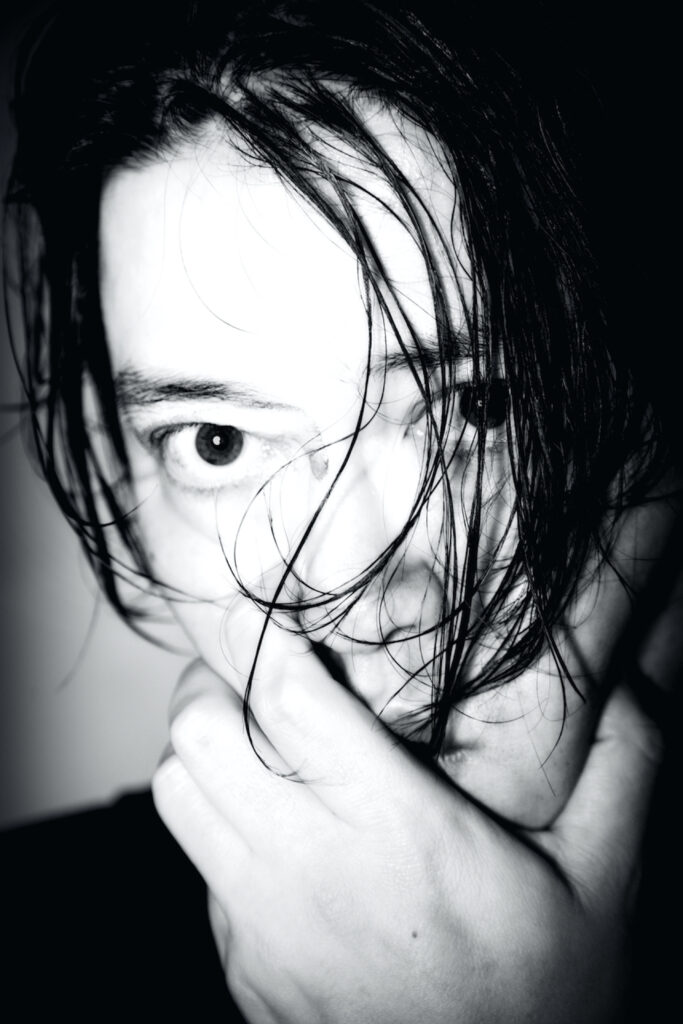
Keiichiro Shibuya
Keiichiro Shibuya graduated from Tokyo University of the Arts with a B.A. in Music Composition. In 2002, he founded the music label, ATAK. His diverse soundscape covers areas such as cutting-edge electronic music, piano solos, opera, soundtrack music, sound installation, and so forth.
He released a Vocaloid opera starring Hatsune Miku, which comprised of no people, called “The End” in 2012. The opera was shown at Théâtre du Châtelet and other places around the world. In 2018, he released “Scary Beauty,” an android opera conducted by an AI-operated humanoid android that sings along. This was shown in Japan, Europe, and UAE. In September of 2019, Keiichiro then presented “Heavy Requiem,” a marriage between Buddhist music and chants and electronic music, at Ars Electronica in Austria. He explores themes of humanity and technology as well as the border between life and death with his work.
In September 2020, he created the music for the film “Midnight Swan” starring Tsuyoshi Kusanagi. His work for this film won the Music Award at both the 75th Mainichi Film Awards and the 30th Japan Movie Critics Award. His most recent opera piece, Super Angels, had its world premiere on August 2021 at New National Theater Tokyo. He is scheduled to present a new android opera at the Dubai Expo’s Japan Day in December 2021. They are planning a large-scale work that is a collaboration of Buddhist music/chants and an orchestra from the UAE.
http://atak.jp
Photography (portrait) Ronald Stoops
Translation Aya Apton

